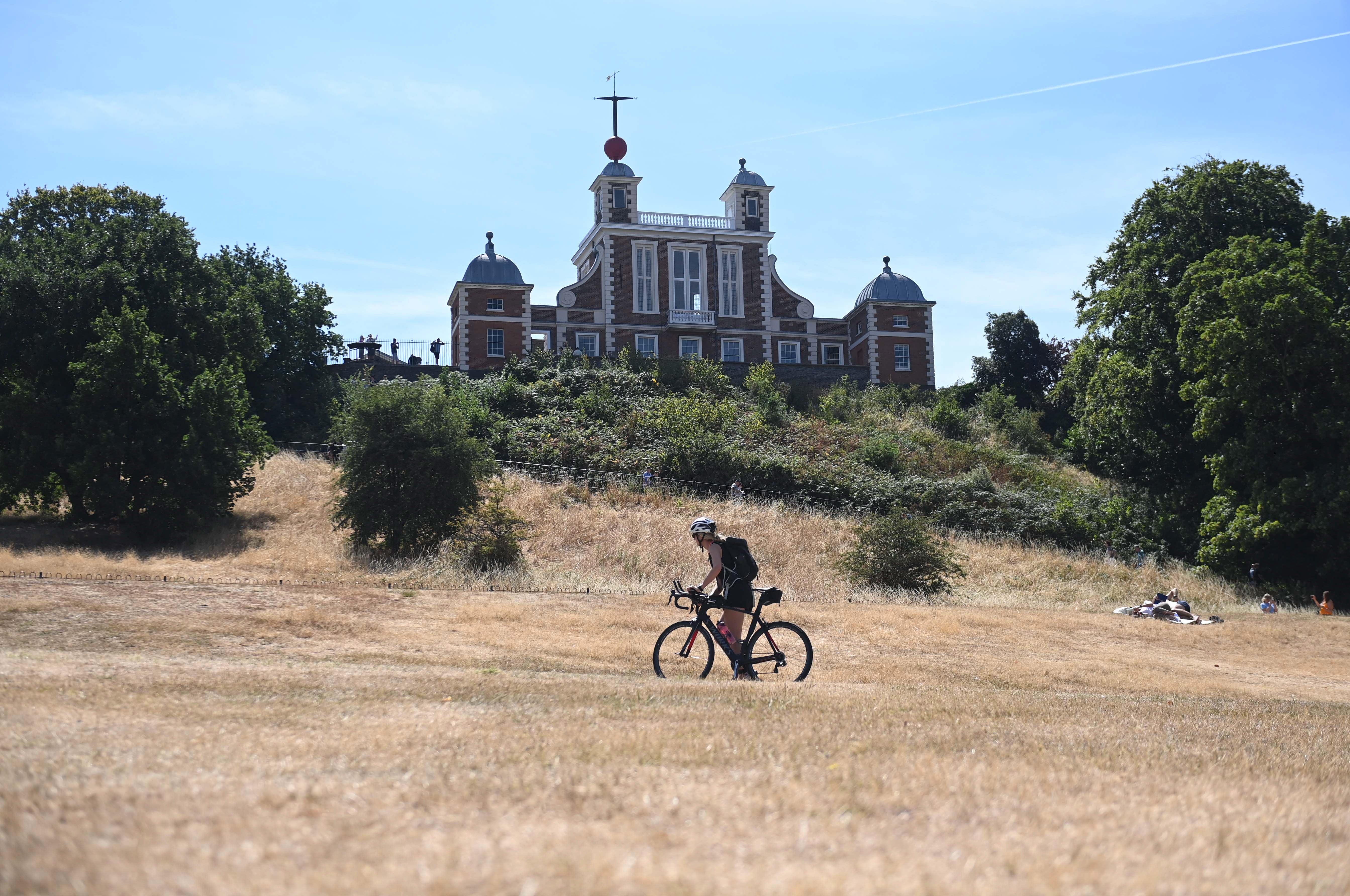The heatwave may be over but Truss and Sunak cannot afford to ignore the climate crisis
Editorial: Neither has set out their views on global heating in their daily policy announcements; regrettably, they seem more interested in their media grid than the national grid

Although the UK’s second heatwave in a month may be drawing to a close, the country cannot take its eye off the unmistakable cause of the extreme weather events we are experiencing faster and with greater intensity than many climate scientists had predicted – the man-made climate crisis.
We would be living in a fool’s paradise if we were to dismiss the heatwaves, and the drought officially declared in large parts of England, as freak events unlikely to be repeated anytime soon. Scientists at the Met Office believe the UK could experience temperatures above 40C every three years. Around the world, land and ocean heatwaves, drought, wildfires, storms, rain and flooding have all been made more severe or likely by human-caused heating, according to Carbon Brief.
Sky-high temperatures are hitting energy output from fossil, nuclear and solar sources; the technology works less well in high temperatures, compounding the crisis in energy supplies across Europe caused by Russia’s invasion of Ukraine. The shortages undoubtedly reinforce the case for much greater investment in solar, wind and tidal power. Yet, sadly, some politicians prefer to argue we will need fossil fuels, including North Sea oil, to play a bigger role than expected during the transition to “net zero”.
On the face of it, we might have expected the latest example of extreme weather to be a wake-up call for our politicians. The Labour opposition acknowledges the scale of the task with its £28bn-a-year climate investment plan. But those in the governing party appear to be heading off in a dangerously wrong direction.
Liz Truss and Rishi Sunak, the two runners in the Tory leadership race, have given their support in principle for the UK’s target to reduce greenhouse gas emissions to net zero by 2050. But they have both dodged questions about the climate at hustings meetings, at which they oppose more onshore wind and pledge to allow fracking in the (unlikely) event local people support it.
Neither has set out their views on global heating in their daily policy announcements; regrettably, they seem more interested in their media grid than the national grid. While they are naturally preoccupied with the immediate cost of living crisis, speeding up the switch to renewables would bring down bills and tackle a threat to the planet that cannot be put off to another day.
Ms Truss has said achieving net zero must not “harm people and businesses”. She is sceptical about solar farms and has promised to temporarily scrap the green levies on energy bills, saving domestic consumers about £150 but prioritising energy affordability over sustainability.
As chancellor, Mr Sunak was no friend of Tory environmentalists, who worried about his reluctance to spend money in areas such as investment, home insulation and carbon pricing.
Of course, both candidates currently have two eyes on the 160,000 Tory members who are choosing our next prime minister. They are, to put it mildly, sceptical about net zero; only 4 per cent put it in their top three priorities for the party’s next leader, according to YouGov.
To keep up to speed with all the latest opinions and comment, sign up to our free weekly Voices Dispatches newsletter by clicking here
Thankfully, the net zero target was enshrined into law by Theresa May in one of her last acts before stepping down as prime minister in 2019. This will surely make it impossible for Ms Truss or Mr Sunak to reverse. It is hard to see where the parliamentary votes would come from, apart from those Tory MPs in the Net Zero Scrutiny Group, who happily share reports saying the climate emergency is not happening and have links with a lobby group partly funded by oil interests.
In his final weeks in office, Boris Johnson has been less active on the climate front than Ms May; he missed meetings of the Cobra emergency committee during last month’s heatwave. Yet for all his faults in other areas, Mr Johnson was a convert to the green cause, and Tory environmentalists rightly worry his successor will not share his enthusiasm, even though his “green industrial revolution” could create 250,000 jobs.
The Independent hopes the new prime minister will swiftly lift their sights from the 0.34 per cent of the electorate they are currently wooing, and give climate change the top priority it deserves. If they do not, they will be taking a huge political gamble, especially among younger voters.
Other countries will look for reassurance from the UK’s new leader that it will not dilute its international commitments on the climate crisis. Any hint of a retreat would deal a blow to the standing of “global Britain”, and mean missing the opportunity created by Mr Johnson’s departure to improve its reputation.
Join our commenting forum
Join thought-provoking conversations, follow other Independent readers and see their replies
Comments
Bookmark popover
Removed from bookmarks